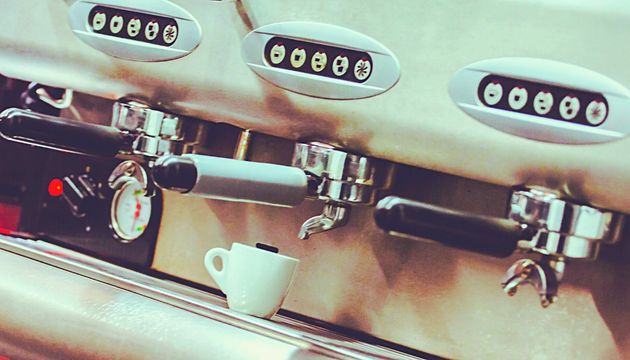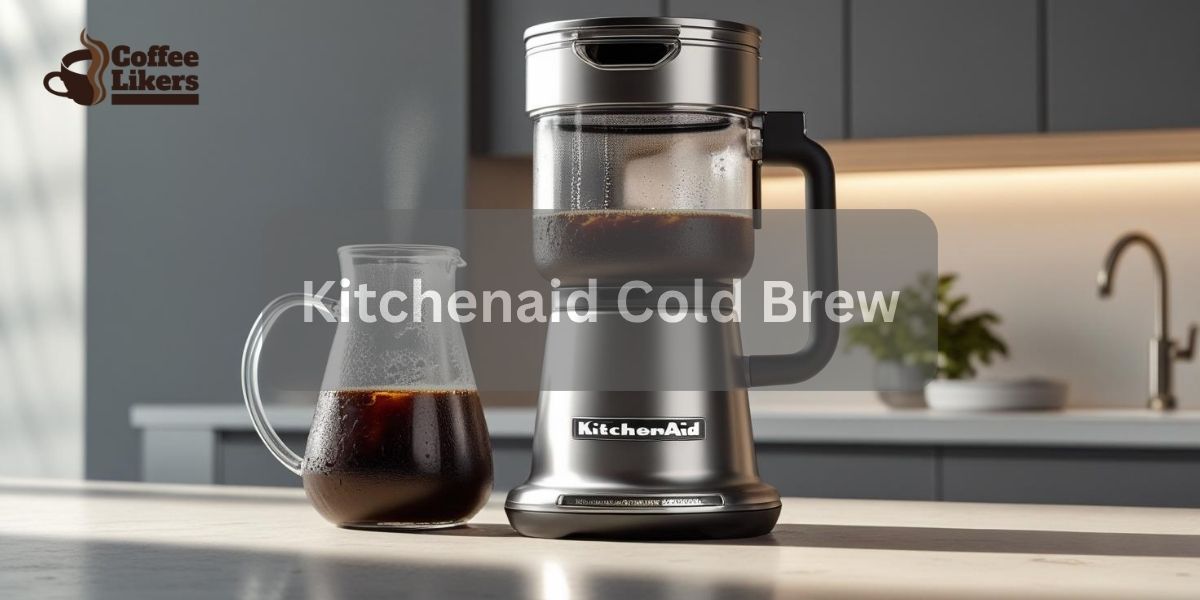Introduction
Descaling is an essential process for maintaining the performance and longevity of a coffee maker. It involves removing mineral deposits that build up over time from the internal components of the machine. Descaling agents or solutions are commonly used to facilitate this process with limescale like vinegar.
However, some coffee machine owners may have concerns about the potential damage that descalers may cause to their machines. The question arises: “Can descaler damage coffee machines?”
In this context, it is important to understand the properties of descalers and how they interact with coffee machines to determine whether or not they can cause any harm. This question will be explored in further detail in the following discussion.
What is Descaler for Coffee Machines Due to Cleaning and Descaling?
Descaler for coffee machines is a specialized cleaning agent or solution used to remove mineral deposits that accumulate over time inside the machine. These deposits can come from hard water or mineral-rich tap water used to make coffee, and they can build up on the internal components of the coffee machine, such as the heating element and the pipes.
Can descaler damage coffee machine? Descaling solutions are designed to dissolve these mineral deposits and clean the internal components of the machine, which can help to maintain the machine’s performance and extend its lifespan. Descalers can be purchased in liquid, powder, or tablet form, and they are typically made from citric acid, acetic acid, or other chemicals that are safe for use with coffee machines.
It is important to follow the manufacturer’s instructions when using descaling solutions, as improper use can potentially damage the machine or affect the taste of the coffee.
What is the Main Ingredient in a Descaler?
The main ingredient in a descaler depends on the type and brand of the descaler being used. However, the most common and effective ingredient in descaling solutions is an organic acid such as citric acid, acetic acid (vinegar), or lactic acid.
These organic acids work by reacting with and dissolving the mineral deposits that build up inside coffee machines. Citric acid is one of the most popular descaling agents because it is effective at removing scale and is safe to use on most types of coffee machines.
Other ingredients that may be included in a descaling solution include surfactants, corrosion inhibitors, and chelating agents that help to prevent the formation of new scales and protect the internal components of the coffee machine. It is important to check the label or manufacturer’s instructions to ensure that the descaler is safe and appropriate for use with your specific coffee machine.
How to Use Descaler in Coffee Machine to Descale Your Coffee?
The process for using a descaler in a coffee machine can vary depending on the specific type and brand of descaler being used, as well as the type of coffee machine that is cleaned. However, here are some general steps that can be followed to descale the coffee machine:
- Read the manufacturer’s instructions for the descaler to ensure that it is appropriate for use with your specific coffee machine.
- Empty the water tank of the coffee machine and rinse it thoroughly with clean water.
- Mix the descaling solution according to the manufacturer’s instructions, and pour it into the water tank.
- Place a container or cup under the coffee machine’s spout to catch the descaling solution as it flows through the machine.
- Turn on the coffee machine and run the descaling solution through the machine according to the manufacturer’s instructions. This may involve pressing a specific button or combination of buttons or allowing the machine to run through a brewing cycle.
- Once the descaling cycle is complete, empty the container or cup that caught the descaling solution.
- Refill the water tank with clean water and run the machine through a brewing cycle to rinse out any remaining descaling solution.
- Repeat the rinsing process with clean water until there is no trace of the descaling solution left in the machine.
- Wipe down the exterior of the coffee machine with a clean, damp cloth.
It is important to follow the manufacturer’s instructions for the specific descaling solution and the coffee machine is used to ensure that the descaling process is effective and safe. Additionally, it is generally recommended to descale coffee machines every 3-6 months, depending on usage and the level of mineral buildup.
Can Descaler Damage Coffee Machine When You Descale a Coffee Maker?
When used properly, descaling solutions should not damage coffee machines. However, improper use or use of the wrong type of descaler can potentially cause damage to the machine.
For example, using a descaler that is too strong or leaving it in the machine for too long can damage the internal components of the coffee machine, such as the heating element, pipes, or seals. Similarly, using a descaler that is not appropriate for your specific coffee machine can potentially damage the machine.
Therefore, it is important to follow the manufacturer’s instructions for the descaler and the coffee maker and to use the appropriate descaler for your machine. It is also recommended to avoid using homemade descaling solutions, as these may not be formulated to work with coffee machines and can potentially cause damage.
If you have any concerns about using a descaler with your coffee machine, consult the manufacturer’s instructions or contact the manufacturer’s customer support for guidance.

How Many Times Should You Rinse Coffee Machine After Descaling?
After descaling a coffee machine, it is recommended to rinse it thoroughly with clean water several times to ensure that there is no residual descaling solution left in the machine. The number of times you should rinse the machine will depend on the specific descaling solution and coffee machine being used, as well as the manufacturer’s instructions.
In general, it is recommended to rinse the machine at least 3-4 times with clean water, running a brewing cycle between each rinse. Can descaler damage coffee machine? This will help to flush out any remaining descaling solution from the machine and ensure that it is safe for use.
It is also important to pay attention to the water coming out of the machine during the rinsing process. If the water still appears cloudy or has an odor, continue rinsing until the water runs clear and odor-free. Once the water runs clear and odor-free, the machine is ready to use again for brewing coffee.
What is the Best Descaling for Coffee Machine to Get Clean Coffee?
The best recommended descaling solution for a coffee machine can depend on various factors, such as the type of coffee machine being used, the level of mineral buildup, and personal preference. However, here are some popular and effective descaling solutions for coffee drinkers.
- Citric Acid: Citric acid is a common and effective descaling solution for coffee machines. It is gentle on the machine’s internal components and is effective at removing mineral buildup.
- Vinegar: White vinegar is another popular descaling solution that is readily available and inexpensive. However, it can leave a strong odor and taste in the machine if not rinsed thoroughly.
- Dedicated Descaling Solutions: Many coffee machine manufacturers offer their own dedicated descaling solutions that are formulated specifically for their machines. These can be effective and safe to use but may be more expensive than other options.
- Powdered Descalers: There are also powdered descaling solutions available that can be mixed with water to create a solution. These can be effective and easy to use, but it is important to ensure that the powder is fully dissolved to avoid damaging the machine.
Regardless of the type of descaling solution used, it is important to follow the manufacturer’s instructions and to rinse the machine thoroughly after descaling to ensure that there is no residual solution left in the machine.
Final Thoughts
When used properly, descalers should not damage coffee machines. It is important to use the appropriate type of descaler for your specific coffee machine, as every machine is different.
And follow the manufacturer’s instructions, and rinse the machine thoroughly with clean water after descaling to ensure that there is no residual solution left in the machine. Using a descaler too frequently or leaving it in the machine for too long can potentially cause damage to the internal components of the coffee machine.
If you have any concerns about can descaler damage coffee machine and using a descaler with your coffee machine, consult the manufacturer’s instructions or contact the manufacturer’s customer support for guidance.
FAQ:
1. Is Electronic Descaler Safe for Your Descaling Solution?
Electronic descalers, also known as electronic water conditioners or electronic water descalers, are a type of descaling solution that uses an electromagnetic field to treat the water and prevent mineral buildup in coffee machines and other appliances.
These devices are generally considered safe for use and do not contain any harsh chemicals or acids that can potentially damage the machine. They are also easy to use and require minimal maintenance.
However, there is some debate over the effectiveness of electronic descalers in preventing mineral buildup in coffee machines. While some users report positive results, others have found that they do not effectively prevent scaling and may not be as effective as other descaling solutions.
Therefore, if you are considering purchasing an electronic descaler to descale the machine, it is important to do research and read reviews from other users. Additionally, it is recommended to follow the manufacturer’s instructions and regularly clean the coffee machine to prevent mineral buildup and prolong its lifespan.
2. What is the Best Natural Descaler for Descale Your Coffee Machine?
There are several natural descalers that can effectively remove mineral buildup in coffee machines. Here are some of the best natural descalers:
- Lemon Juice: Lemon juice is a natural acid that can effectively remove mineral buildup in coffee machines. Simply mix equal parts water and lemon juice and run it through the automatic coffee machine.
- Vinegar: White vinegar or descaling solution is a popular natural descaler that is readily available and inexpensive. Mix equal parts water and vinegar and run it through the machine.
- Citric Acid Descaler: Citric acid is a natural acid that can be found in fruits such as lemons and oranges. You can purchase citric acid powder and mix it with water to create a descaling solution to clean your coffee maker.
- Baking Soda: Baking soda is an abrasive cleaner that can help to remove mineral buildup or clog in the best coffee machines. Mix 1 tablespoon of baking soda with 1 cup of water and run it through the machine.
It is important to note that while natural descalers can be effective, they may not be as powerful as other descaling solutions and may require more frequent use. It is also important to follow the manufacturer’s instructions and rinse the machine thoroughly after descaling to ensure that there is no residual solution left inside of your machine. Here we have also known the list of what is descaler for coffee machines.
3. Is Descaler Just Use Citric Acid to Descale the Coffee Pot?
Descaler is not just citric acid, although citric acid is a common ingredient found in many commercial descaling solutions. Descalers are formulated to dissolve and remove mineral buildup in coffee equipment and other appliances that come into contact with hard water.
While citric acid is effective at removing mineral buildup, other acids such as acetic acid (found in vinegar), lactic acid, and sulfamic acid are also commonly used in descaling solutions.
Some descalers may also contain surfactants or other ingredients that help to remove coffee oils and other residues that can build up inside the coffee machine. It is important to use a descaler that is specifically formulated for your coffee machine and to follow the manufacturer’s instructions to ensure that it is used safely and effectively.
4. Do I Need to Descale if I Use filtered Water in My Espresso Machine?
Even if you use filtered water, it is still recommended to use a descaler regularly to prevent mineral buildup. While filtered water can remove some impurities and minerals, it may not remove all of the minerals that can accumulate in the coffee machine over time.





Leave a Reply